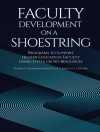An illuminating account of cultural resilience in Java
Five centuries after the fall of its last Hindu Buddhist kingdom, Java retains only one small population that preserves a non-Islamic priestly tradition descended from early Hindu clergy. Known as the Tengger, these mountain Javanese lack the courts, castes, and religious scholars that transmit Hindu tradition in nearby Bali, the only other area in Indonesia to have kept a Hindu faith. What explains the cultural resilience of the Tengger? Robert Hefner blends historical and ethnographic research to explain the enduring strength of a religion in the face of a revitalized Indonesian Islam. He provides insight into Java’s earlier Hindu traditions and the process of Islamization that swept them aside and shows how the Tengger example speaks not only to cultural change in a corner of Java but to the dissolution of traditional religions amid the advance of world faiths.
Exploring how meaning is derived from public symbolism, Hindu Javanese emphasizes the centrality of tacit knowledge in religious practice and the role of history and community in continually shaping and renewing spiritual experience.
About the author
Robert W. Hefner is professor of anthropology at Boston University. His books include
Civil Islam: Muslims and Democratization in Indonesia and
Schooling Islam: The Culture and Politics of Modern Muslim Education (both Princeton).












